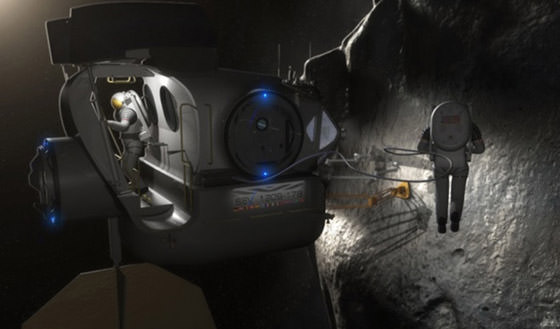Fancy yourself an asteroid hunter? There’s $35,000 available in prizes for NASA’s new Asteroid Data Hunter contest series, which will be awarded to citizen scientists who develop algorithms that could be used to search for asteroids.
Here’s where you can apply for the contest, which opens March 17 and runs through August. And we have a few more details about this joint venture with Planetary Resources Inc. below.
“The Asteroid Data Hunter contest series challenges participants to develop significantly improved algorithms to identify asteroids in images captured by ground-based telescopes,” NASA stated. “The winning solution must increase the detection sensitivity, minimize the number of false positives, ignore imperfections in the data, and run effectively on all computer systems.”
We got a sharp reminder of the danger of asteroids to Earth in February 2013 when a meteor slammed into the atmosphere above Chelyabinsk, Russia, causing damage and hundreds of injuries. Meanwhile, NASA is working on a project to redirect an asteroid closer to Earth for astronauts to explore, a concept that has funding allocated in their 2015 budget request to Congress.
In November, NASA announced that Planetary Resources (the company best known for the “selfie” space telescope) is going to work on “crowdsourced software solutions” with NASA-funded data to make it easier to find asteroids and other near-Earth objects.


[EDIT: On a second reading, this prize might not be exclusively for the NASA “Asteroid” Retrieval Mission, which is what I assumed when I commented below. I don’t mind asteroid spotting for useful purposes.]
It would’ve been more honest to illustrate the max 7 meter diameter (about 1/3 of Chelyabinsk) meteoroid which the Redirect Mission aims to work with. At multi-billion costs. Decades from now. Instead of drawing what looks like a *real asteroid*.
It is indeed a challenge to find meteoroids which are small enough to be:
– harmless for planetary defence,
– economically irrelevant for mining and
– scientifically uninteresting since we have found many of them and their larger cousins here on Earth’ ground already.
And challenges are fun to bright people, so in that way this mission does have an(other) entertainment aspect!